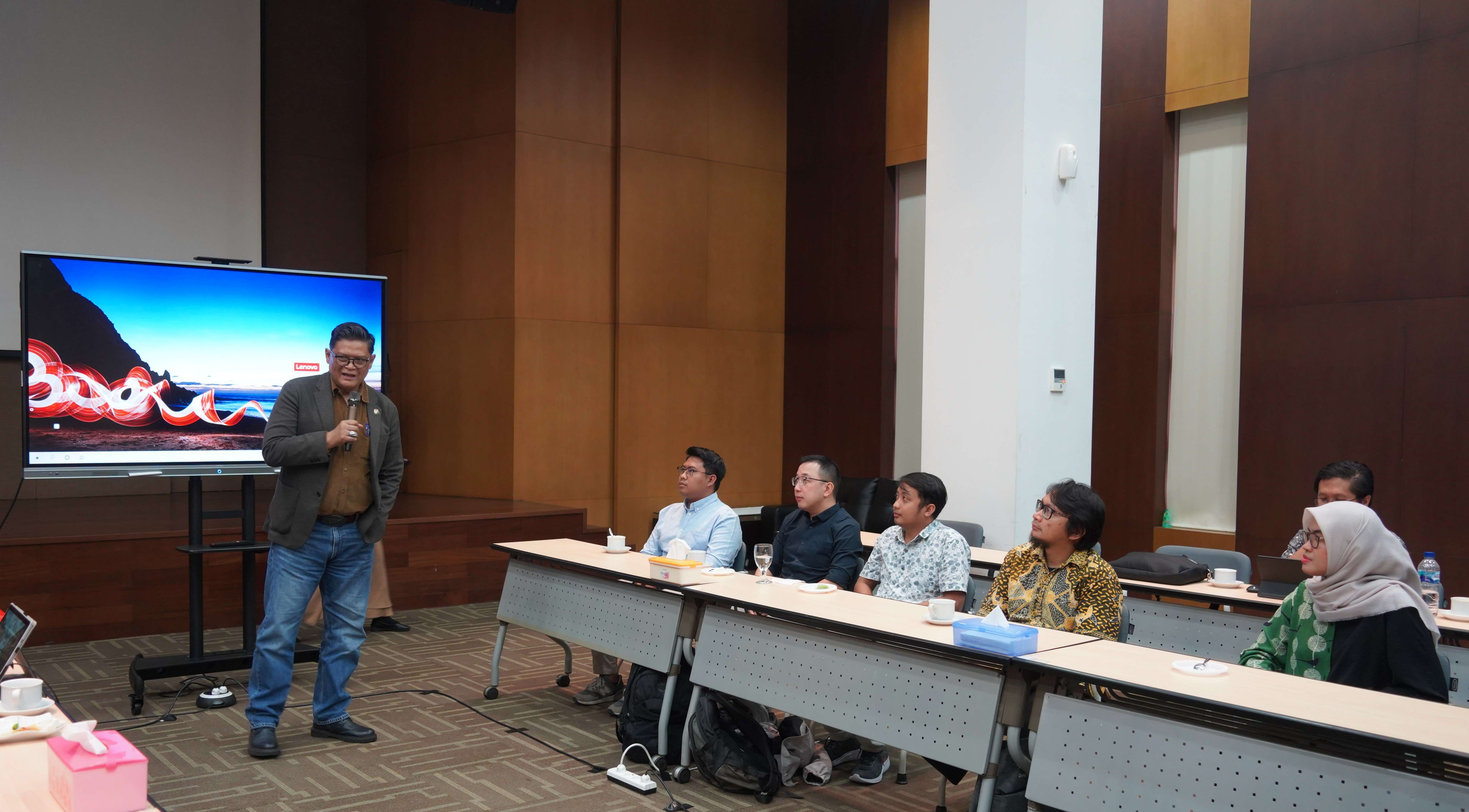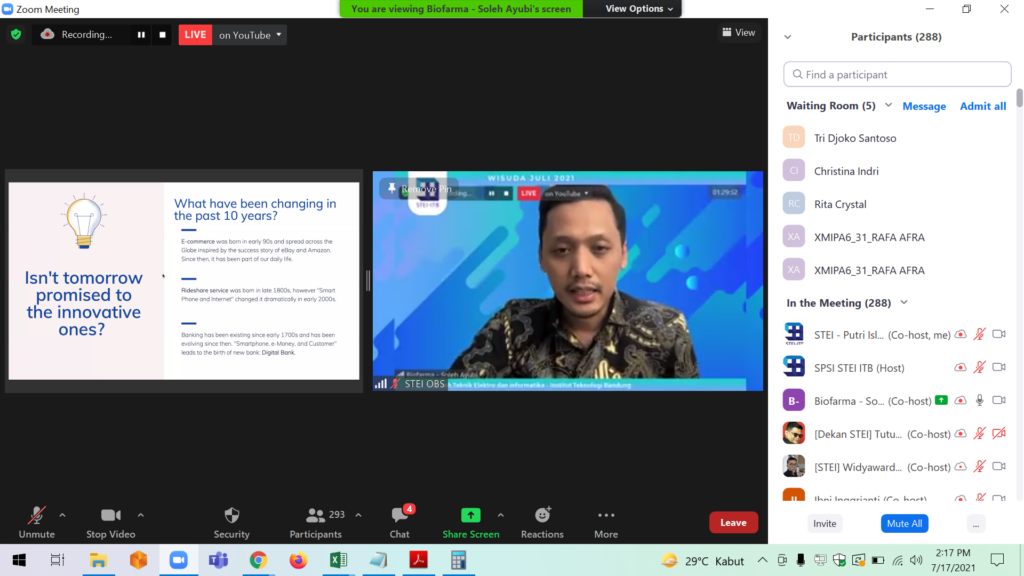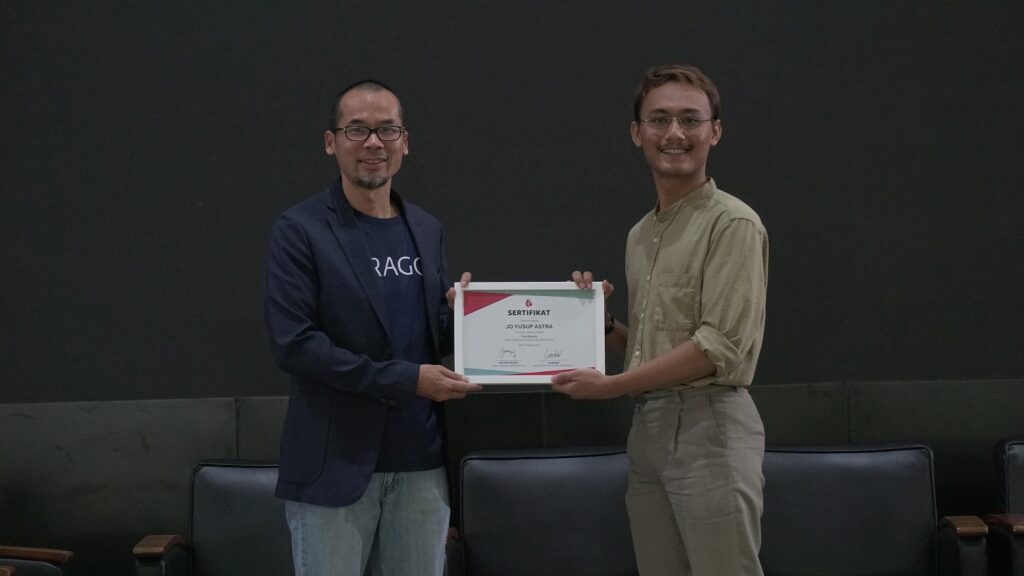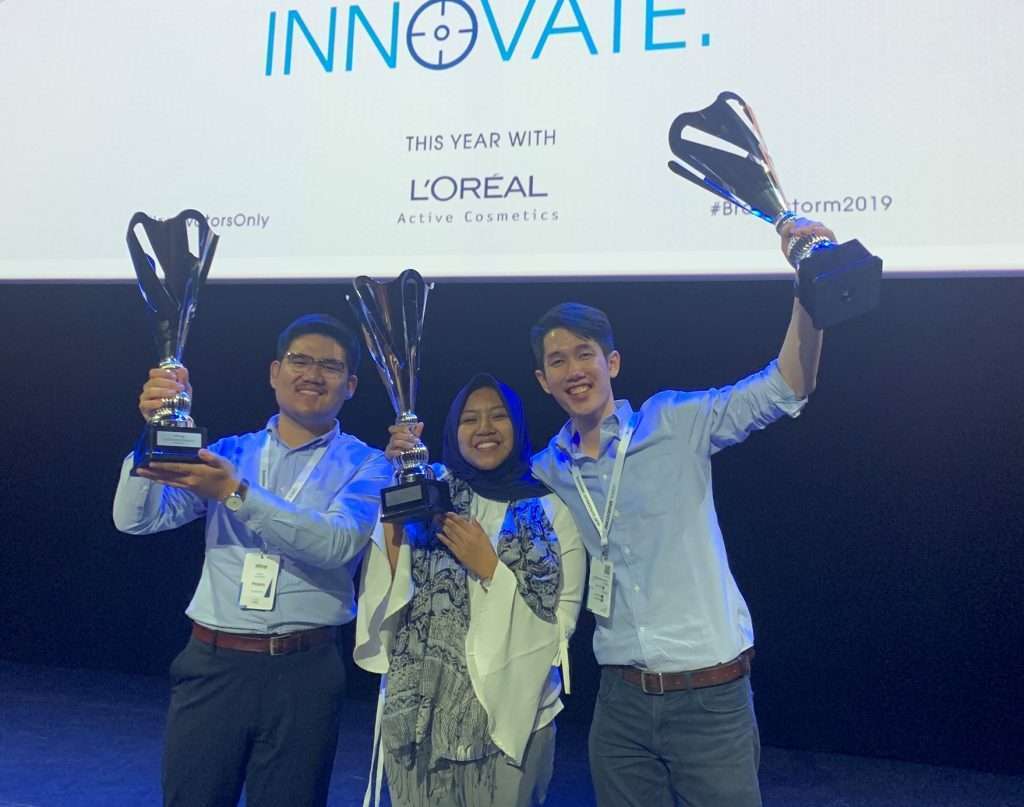In today's rapidly evolving digital landscape, information systems and technology have become an integral part of businesses, organizations, and societal development. This field plays a crucial role in shaping modern society by driving innovation, enhancing decision-making, and optimizing operational efficiency. Information systems and technology are deeply embedded in daily life, influencing various aspects such as knowledge management, engineering and design, service development, operational activities, and strategic management.
Recognizing the transformative impact of this field, the Information Systems and Technology undergraduate program was established in 2006. This program is designed to address the accelerating technological advancements, emerging challenges, and ever-evolving needs of organizations and society in managing information systems and technology. Its primary goal is to equip students with the knowledge, technical expertise, and critical thinking skills necessary to adapt to and contribute to the dynamic digital world.
The program adopts a multidisciplinary approach, combining theoretical foundations with practical applications. Students are trained in systems thinking, problem-solving methodologies, and strategic technology implementation. The curriculum is structured to ensure that graduates not only understand current technological trends but also anticipate future developments and their impact on industries and society.
Two Core Domains in the Program
The undergraduate program encompasses two primary academic domains within the field of computing:
-
Information Systems (IS)
This domain focuses on the principles and methodologies for capturing, storing, processing, analyzing, and distributing information. The objective is to develop systems that support organizational goals, improve decision-making, and enhance efficiency through data-driven insights. Students in this track will study database management, business intelligence, enterprise systems, and digital transformation. -
Information Technology (IT)
This domain emphasizes the selection, development, implementation, integration, and evaluation of technological solutions based on user and organizational needs. Students will explore software engineering, networking, cybersecurity, cloud computing, and system architecture. By integrating IT strategies into business processes, students will be able to develop solutions that enhance productivity, security, and innovation.
Industry-Oriented Approach
One of the key strengths of this program is its industry-oriented approach. The curriculum incorporates hands-on learning experiences, case studies, internships, and collaborative projects with leading organizations. Students have the opportunity to tackle real-world challenges, gain insights into the latest technologies, and understand best practices in the industry.
Career Opportunities and Contributions to Society
The effective and efficient utilization of information systems and technology is crucial for enhancing business competitiveness and accelerating societal progress. Graduates of this program contribute to various sectors, including business, education, healthcare, culture, transportation, manufacturing, tourism, and entertainment. With a strong foundation in both technical and managerial aspects, alumni are prepared for diverse professional roles, such as system analysts, IT consultants, software developers, data scientists, cybersecurity specialists, and tech entrepreneurs.
As the digital world continues to expand, the demand for experts in information systems and technology is rising. This undergraduate program equips students with the expertise and adaptability needed to succeed in a technology-driven society, ensuring they remain at the forefront of innovation and digital transformation.
Education Objectives
• Lulusan akan memiliki karir yang sukses dalam profesinya di bidang sistem, teknologi
informasi, atau bidang yang terkait.
• Lulusan akan berhasil menempuh studi pascasarjana atau terlibat dalam pengembangan profesional.
• Lulusan akan menunjukkan kepemimpinan dan berperan aktif dalam memajukan
komunitasnya.
Learning Outcomes
• Mampu menganalisis masalah komputasi yang kompleks dan menerapkan prinsip-prinsip komputasi dan disiplin keilmuan lain yang relevan dalam mengidentifikasi solusi.
• Mampu merancang, mengimplementasikan, dan mengevaluasi solusi berbasis komputer untuk memenuhi kebutuhan-kebutuhan komputasi yang berhubungan dengan sistem dan teknologi informasi.
• Mampu berkomunikasi secara efektif dalam berbagai konteks profesional.
• Memahami tanggung jawab profesional dan mampu melakukan penilaian berdasarkan informasi dalam praktik komputasi berdasarkan prinsip-prinsip legal dan etika.
• Mampu melakukan fungsi sebagai pemimpin atau anggota tim secara efektif dalam kegiatan yang berhubungan dengan sistem dan teknologi informasi.
• Mampu mendukung penyampaian, penggunaan, dan pengelolaan sistem informasi dalam suatu lingkungan sistem informasi.
• Mampu mengidentifikasi dan menganalisis kebutuhan-kebutuhan pengguna dan mempertimbangkannya dalam pemilihan, pembuatan, integrasi, evaluasi, dan pengelolaan sistem berbasis komputer.
Curriculum
| No | Code | Course | Credits |
|---|---|---|---|
| 1 | FI1101 | Fisika Dasar I | 3 |
| 2 | KI1101 | Kimia Dasar I | 3 |
| 3 | MA1101 | Matematika I | 4 |
| 4 | WI1101 | Pancasila | 2 |
| 5 | WI1102 | Berpikir Komputasional | 2 |
| 6 | WI1103 | Pengantar Prinsip Keberlanjutan | 2 |
| 7 | WI1111 | Laboratorium Fisika Dasar | 1 |
| 8 | WI1116 | Laboratorium Interaksi Komputer | 1 |
| Credit Total | 18 | ||
| No | Code | Course | Credits |
|---|---|---|---|
| 1 | IF1210 | Algoritma dan Pemrograman 1 | 3 |
| 2 | II1200 | Pengantar Sistem dan Teknologi Informasi | 3 |
| 3 | WI2001 | Pengenalan Rekayasa dan Desain | 3 |
| 4 | WI2002 | Literasi Data dan Inteligensi Artifisial | 2 |
| 5 | WI2003 | Olah Raga | 1 |
| 6 | WI2005 | Bahasa Indonesia | 2 |
| 7 | WI2006 | Kewarganegaraan | 2 |
| 8 | WI201X | Agama | 2 |
| Credit Total | 18 | ||
| No | Code | Course | Credits |
|---|---|---|---|
| 1 | IF2010 | Pemrograman Berorientasi Objek | 3 |
| 2 | IF2040 | Pemodelan Basis Data | 3 |
| 3 | II2100 | Komunikasi Interpersonal dan Publik | 2 |
| 4 | II2110 | Matematika Diskret | 3 |
| 5 | II2120 | Jaringan Komputer | 3 |
| 6 | II2130 | Sistem dan Arsitektur Komputer | 3 |
| 7 | WI2004 | Bahasa Inggris | 2 |
| Credit Total | 19 | ||
| No | Code | Course | Credits |
|---|---|---|---|
| 1 | IF2050 | Dasar Rekayasa Perangkat Lunak | 3 |
| 2 | II2210 | Teknologi Platform | 3 |
| 3 | II2211 | Probabilitas dan Statistik | 3 |
| 4 | II2221 | Analisis Kebutuhan Enterprise | 3 |
| 5 | II2240 | Sistem Multimedia | 3 |
| 6 | II2250 | Manajemen Basis Data | 2 |
| 7 | II2260 | . | 3 |
| Credit Total | 20 | ||
| No | Code | Course | Credits |
|---|---|---|---|
| 1 | IF3070 | Dasar Inteligensi Artifisial | 3 |
| 2 | II3120 | Layanan Sistem dan Teknologi Informasi | 3 |
| 3 | II3130 | Arsitektur Enterprise | 3 |
| 4 | II3131 | Interaksi Manusia Komputer | 3 |
| 5 | II3140 | Pengembangan Aplikasi Web dan Mobile | 3 |
| 6 | II3160 | Teknologi Sistem Terintegrasi | 3 |
| 7 | II3170 | Hukum dan Etika Teknologi Informasi | 2 |
| Credit Total | 20 | ||
| No | Code | Course | Credits |
|---|---|---|---|
| 1 | IF3211 | Komputasi Domain Spesifik | 2 |
| 2 | II3220 | Tata Kelola Teknologi Informasi | 3 |
| 3 | II3230 | Keamanan Informasi | 3 |
| 4 | II3240 | Rekayasa Sistem dan Teknologi Informasi | 4 |
| 5 | WI2022 | Manajemen Proyek | 2 |
| Credit Total | 14 | ||
| No | Code | Course | Credits |
|---|---|---|---|
| 1 | II4090 | Kerja Praktik | 2 |
| 2 | II4091 | Proposal Tugas Akhir | 2 |
| Credit Total | 4 | ||
| No | Code | Course | Credits |
|---|---|---|---|
| 1 | II4092 | Tugas Akhir | 4 |
| Credit Total | 4 | ||
Penjelasan detail untuk masing – masing Mata Kuliah dapat diakses melalui link berikut : https://akademik.itb.ac.id/id/program/S1/program-studi/182
Specialization
Minor
Program Sarjana Internasional
International Undergraduate Program (IUP) di Institut Teknologi Bandung (ITB) memberikan pengalaman pendidikan bertaraf internasional melalui kurikulum global dan kesempatan mengikuti kegiatan akademik di universitas mitra luar negeri pada tahun keempat perkuliahan. Informasi lengkap mengenai persyaratan, mekanisme seleksi, serta tata cara pendaftaran dapat diakses melalui laman resmi Admission ITB: https://admission.itb.ac.id/info/international-undergraduate-program/
Career Prospect
A wide range of career opportunities is available for graduates of the Information Systems Technology program. The following jobs represent just a small sample of the many options available:
- As a designer, to plan the development and manage information technology systems to support the operational management of various institutions and companies.
- As an engineer in the software industry, developing software for information systems within a corporate environment.
- As a researcher in a research institution or educational organization.
- As a creative individual with a forward-thinking vision, defining information as an asset.
- As a facilitator and emancipator, guiding the community in building a thriving and growing society.
Enrollment
Calon mahasiswa yang ingin melanjutkan studi di Sekolah Teknik Elektro dan Informatika (STEI) dapat mengikuti seluruh proses seleksi dan penerimaan yang diselenggarakan secara terpusat oleh Institut Teknologi Bandung (ITB). Informasi resmi mengenai persyaratan, mekanisme seleksi, jadwal, serta tata cara pendaftaran dapat diakses melalui laman Admission ITB pada tautan berikut: https://admission.itb.ac.id/info/stei/
Contact
Contact Us
Undergraduate Program in Information System and Technology
Labtek VIII/Gedung Achmad Bakrie, Jl. II, Lebak Siliwangi, Coblong, Bandung City, West Java 40132
Program Administrator: M Rian Noviansyah
Phone/WA : +62-812-2233-6681
Parkir di ITB
Kendaraan yang bisa masuk ke dalam kampus ITB dibatasi hanya untuk milik pegawai dan tamu khusus. Terdapat tiga tempat fasilitas parkir utama, yakni:
- Sasana Budaya Ganesha (Sabuga) menjadi tempat parkir terluas untuk kendaraan roda empat dan roda dua. Akses masuk parkir ini bisa diraih dari Jalan Taman Sari atau Jalan Siliwangi.
- Parkir Timur (SR) menyediakan tempat terbatas bagi kendaraan roda empat dan roda dua. Parkir ini buka 24/7, kecuali pada hari-hari besar.
- Parkir Barat (Sipil) dikhususkan untuk pengguna kendaraan roda dua.






